Parasite director Bong Joon-ho calls for investigation into Lee Sun-kyun’s death after actor was found dead in his car two days after Christmas following an intense police probe into drug use
Parasite director Bong Joon-ho has accused police in South Korea of trying to kill the star of his Oscar-winning film with their high-profile investigation into his alleged drug use.
Lee Sun-kyun was summoned for police interrogations for national media three times in as many months before he was found dead in his car on December 27.
He was accused of using ketamine and marijuana at a hostess’ home but insisted he was the victim of a blackmail plot in the socially conservative country.
His last police interview lasted 19 hours overnight on Christmas Eve, and Bong used a nationally televised press conference on Friday to accuse police of leaking information to the media.
“We are calling for an investigation into whether there were safety concerns related to the police investigation,” he said along with fellow directors, producers and writers.
Parasite director Bong Joon-ho accused the police of leaking information about their investigation
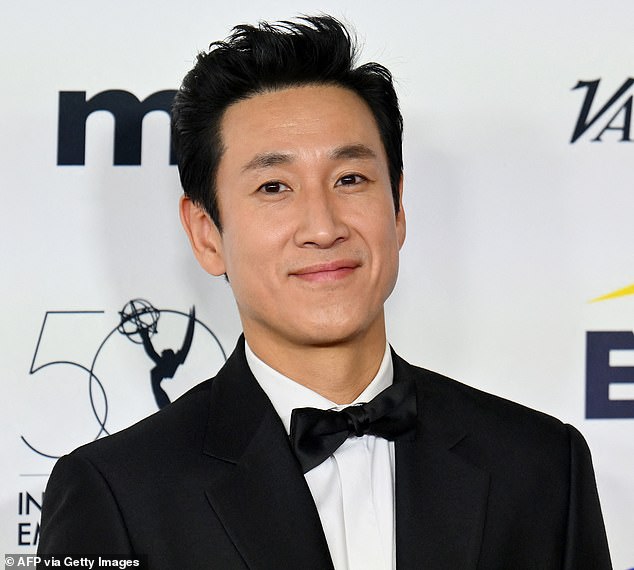
Lee Sun-kyun, a South Korean actor who starred in the Oscar-winning film Parasite, has been found dead at the age of 48 during a police investigation into alleged drug use after a bar hostess claimed the star had used marijuana and ketamine
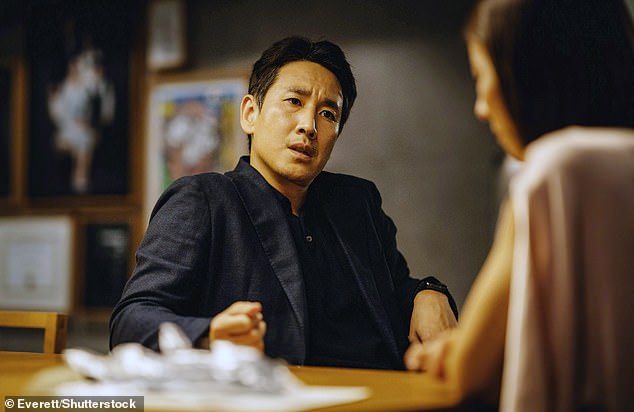
Lee’s role in the Oscar-winning film about a poor family who breaks into a wealthy family’s home catapulted him to stardom, winning Best Picture, Best Director, Best Screenplay and Best International Film.
‘Clear improvements in the law are needed to ensure that the principles and exceptions are not inverted between the human rights of suspects and the public’s right to know.’
Lee, 48, shot to fame in the West playing a wealthy patriarch in the 2020 breakthrough film, which became the first foreign-language film ever to win best picture at the Oscars.
Last year he achieved further success with a nomination for Best Actor at the International Emmy Awards for his performance in the science fiction thriller Dr. Brain.
But he was dumped by his agent and banned from a series of major projects after his arrest in October.
Lee insisted he had not knowingly used illegal drugs and passed toxicology tests: he demanded a lie detector test at the time of his death to assess whether he or the hostess – known only as ‘A’ – was telling the truth.
He claimed she tried to blackmail him and filed a criminal case.
“I would like to sincerely apologize again for worrying so many people,” he said after his first interrogation on Oct. 28 at Nonhyeon Police Station in Incheon.
‘I will answer all questions truthfully.
‘A’ made me take drugs. I didn’t know what she was giving me was illegal drugs.”
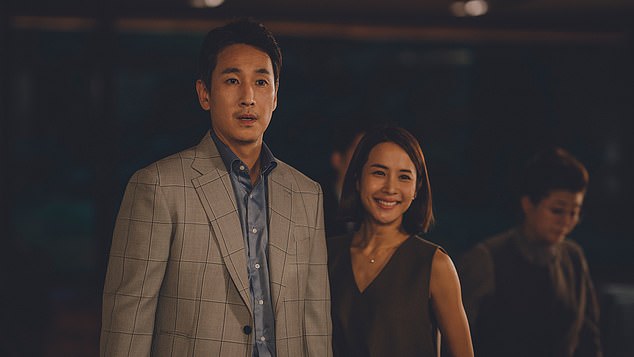
Lee played the role of the father of a wealthy family in the global blockbuster Parasite
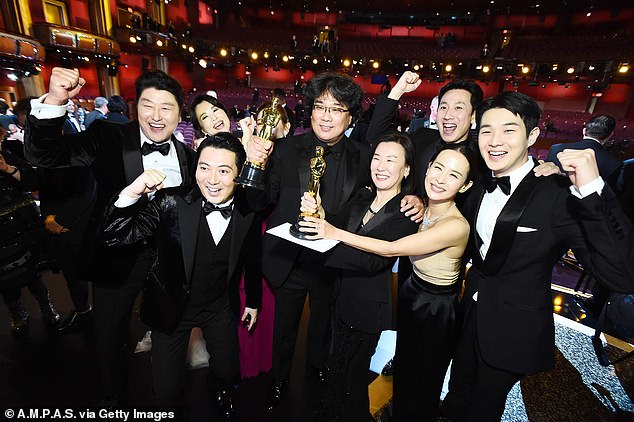
Parasite became the first non-English film to win Best Picture at the Academy Awards (pictured in February 2020 at the Oscars in Hollywood)
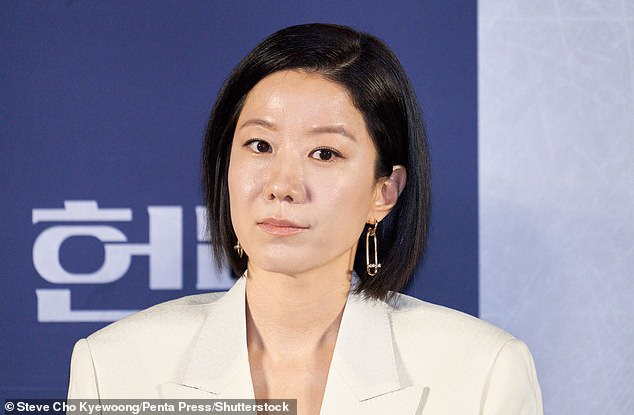
Lee’s wife, Jeon Hye-jin (pictured), reportedly found a suicide note from her husband before raising the alarm
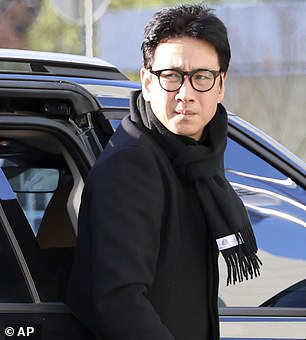
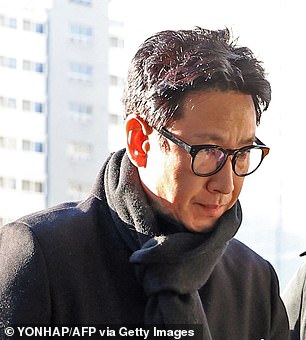
Lee is pictured on December 23 (left) arriving at the Incheon Metropolitan Police station in South Korea for questioning about his drug use
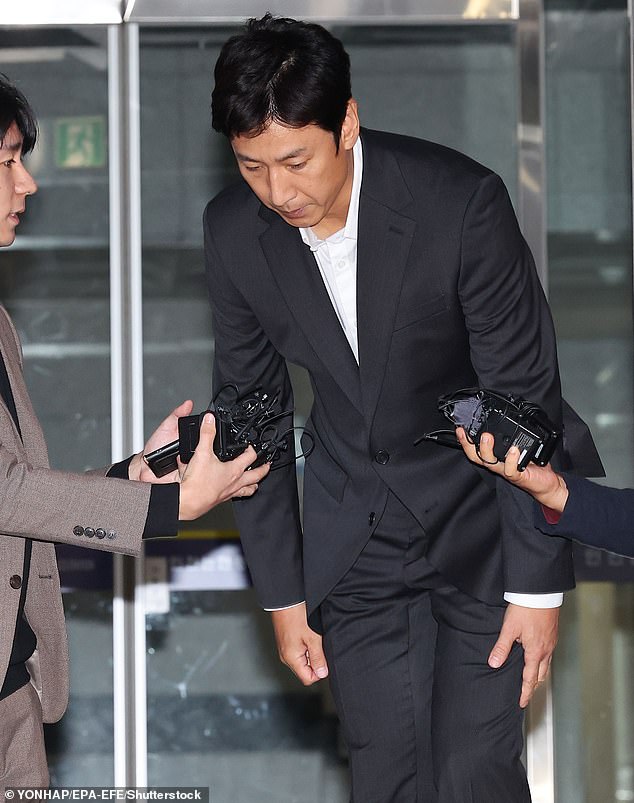
“I would like to sincerely apologize again for worrying so many people,” he said after his first interrogation on Oct. 28 at Nonhyeon Police Station in Incheon.
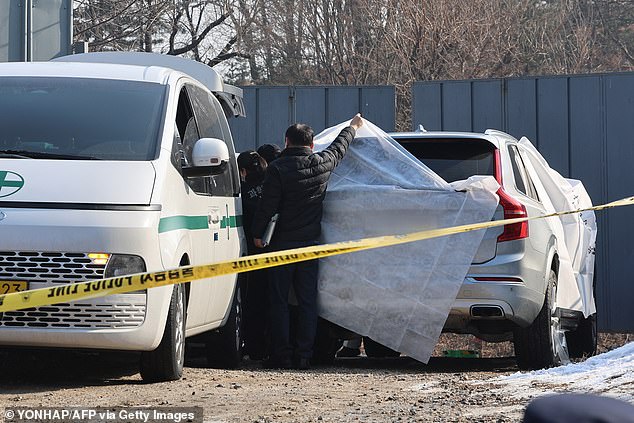
Police are seen guarding a vehicle believed to be where Lee committed suicide on Wednesday
The scandal dominated headlines in Korea, and a day before his death, Lee’s lawyer admitted that his client felt “burdened” by appearing in public to discuss the allegations.
Lee’s wife Jeon Hye-jin, a former Miss Korea contestant, raised the alarm after finding a suicide note, and Lee’s body was found in a parking lot in Seoul.
His death is the latest in a long line of premature and often gruesome deaths that have haunted South Korea’s upper echelons as the country grapples with a series of deadly setbacks and a mounting mental health crisis.
“We share the same heart: this should never happen again,” Bong’s group said in a statement.
“We will call for investigations by investigative officials to discover the truth, request media outlets to remove articles that do not fit their function as media, and urge authorities to revise the law to protect the human rights of artists.”
The district police chief who interviewed Lee has defended his handling of the investigation. Kim Hui-jung, chief of the Incheon Metropolitan Police, told a news briefing that the entire process was justified and carried out with Lee’s permission.
He said the questioning during Lee’s three very public appearances was necessary to hear his side and that the questioning took place in the presence of his lawyer.
“The investigation into the deceased was conducted on the basis of specific reports, testimonies and evidence and according to legally prescribed procedures,” he added.
Yoon Hee-keun, the commissioner general of the National Police Corps (NPA), denied that unreasonable investigations caused the actor’s death.
He added that he would investigate the investigative practices, YNA reported.
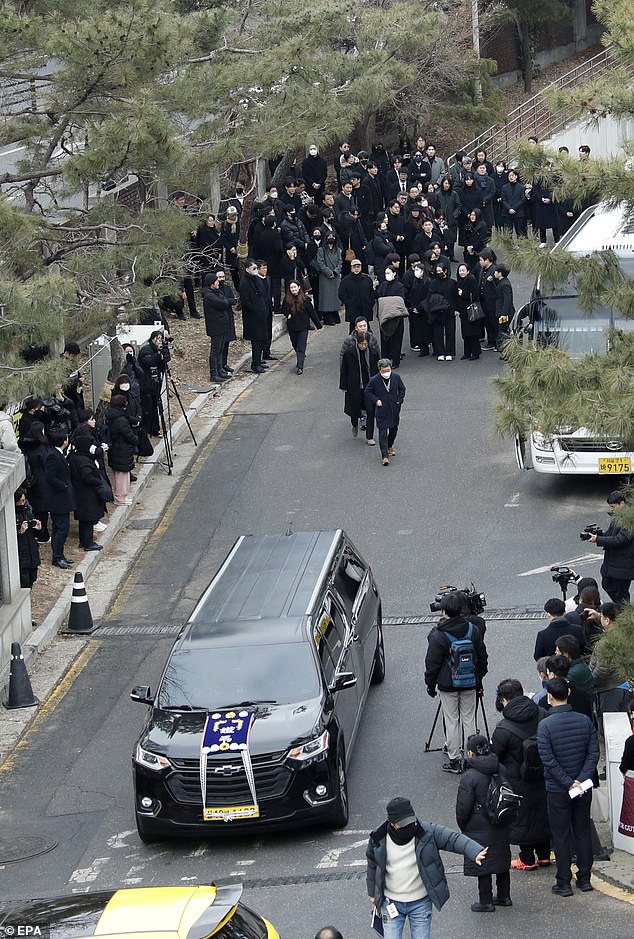
A hearse carrying the late actor’s coffin during his funeral ceremony in Seoul today
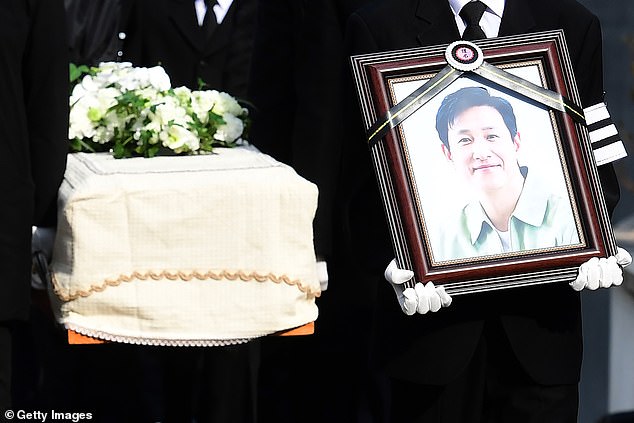
Former South Korean President Moon Jae-in, who was a human rights lawyer before entering politics, was among those who criticized police practices and sensational media coverage of the case.
“The practice that causes immense damage to a person’s honor and character, such as excessively placing them on a media photo line, and pushing them to make the extreme choice, must end now,” Moon said on Facebook.
The investigation is part of a crackdown by the government of conservative President Yoon Suk Yeol, which called it a “war on drugs.”
There have been a series of high-profile arrests, including heirs to business conglomerates and celebrities, under the country’s tough drug laws, which punish those found guilty of drug abuse and trafficking with up to 14 years in prison.
